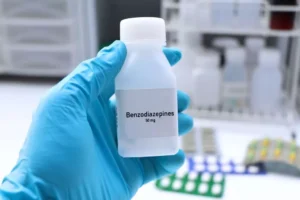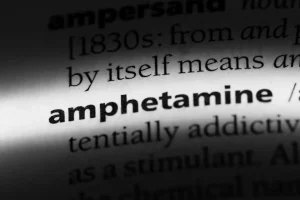
For individuals with cardiovascular issues, the impact of beer on blood pressure and heart health can be detrimental. Beer can also worsen existing conditions such as gout, insomnia, and liver disease. The U.S. Surgeon General warns that moderate consumption of alcohol (two drinks a day) raises the risk for cancers of the mouth, throat breast, colorectum, esophagus, voice box, and liver. Drinking any kind of alcohol in excess can lead to developing alcoholic liver disease. Sobriety Women, too, are at an increased risk of developing alcohol-induced liver injuries due to the slower rate at which they metabolize alcohol.
- There are specific phone apps that can help you keep track of how much you’ve had to drink throughout the night.
- “Although alcohol consumption following a workout has been shown to impair MPS, it hasn’t been shown to have a long-term negative influence on performance.
- This is especially important for people who are at risk of kidney disease, as it can help prevent the condition from developing.
- According to John Hopkins Medicine, light beer can be a better choice than regular beer because it contains “less alcohol and fewer calories.”
- Whether you’re rethinking an open-bar tradition or writing your first policy, it’s not necessarily about banning alcohol altogether; it’s about handling it wisely.
Beer After Work: Why Do I Always Crave It?
Additionally, the high-calorie content of beer can contribute to weight gain, which can further impact overall nutritional intake and health. Drinking several glasses of beer per day has been linked to high blood pressure. Excessive alcohol consumption can cause a condition known as hypertension, characterised by increased blood beer after work pressure. One recent study—like others before it—linked moderate drinking to a lower risk for cardiovascular disease and all-cause mortality. Chronic alcohol use also has serious mental health implications, including the risk of developing alcohol use disorders (AUDs), depression and anxiety.
Things to Consider Before Implementing a Responsible Alcohol Use policy.
Regardless of what career you have, there are steps you can take to monitor your after-work drinking. One of the best ways is simply to limit the amount of drinks you have. There are several drink counting apps to help you keep track of how much alcohol you’ve had. While there can be peer pressure to drink from your coworkers, it’s important to remember that drinking is not required. Opting to have some sparkling water or a soda can be viable alternatives.

Having a beer after work: acceptable or undesirable?
- This allows the most precise assessment of underlying kidney health.
- Electrolytes like sodium, potassium, calcium, magnesium and phosphorus can become depleted due to poor nutrition and alcohol’s diuretic effect.
- Set up for a wonderful evening, so invite your favorite colleague or best friend and talk for a few hours over a glass of red (no table reservation, so get here in time).
- It’s easy to see why Restaurant Ruben has quickly become a favorite after-work activities in the city.
In fact, many chefs are even moving away from beer completely, opting for something quick, like a shot of Jameson or Fernet, or opting for sobriety. In short, alcohol disrupts many biological processes and can make underlying issues harder to detect on lab tests. Abstaining for a period allows your blood chemistry to stabilize and return to normal. This is because it draws fluid into the gut and speeds up the movement of waste through the digestive tract. By promoting regular bowel movements, soluble fibre helps maintain a healthy digestive system.

Overall, drinking in moderation is key to avoiding the negative health effects of alcohol. By understanding the guidelines, individuals can make informed choices to lower their health risks. However, it is important to remember that even moderate drinking may carry some risks, and the decision to consume alcohol should be made carefully, considering individual circumstances and health conditions.
From economic shifts and disruptions to workplace practices and culture, today’s corporations are juggling time, attention and resources. A well-crafted alcohol policy is a foundational risk management tool that helps protect your organization and your employees. Alcohol in the workplace now often includes team happy hours, networking events, client dinners, celebratory toasts, and even virtual mixers where drinking is encouraged. When people think of alcohol at work, they might picture an open bar at a company party or beer in the office fridge. Moderate alcohol consumption reduces the rate of muscle protein synthesis (MPS) following strenuous exercise (3).

Looking Ahead: Rethinking Alcohol’s Role at Work

However, it’s important to understand the impact of alcohol on your brain to avoid potential dangers and health problems. Alcohol interferes with the brain’s communication pathways and can affect how your brain processes information, including your balance, memory, speech, and judgment. Coastal Detox is located in the city of Stuart on Florida’s treasure coast.
